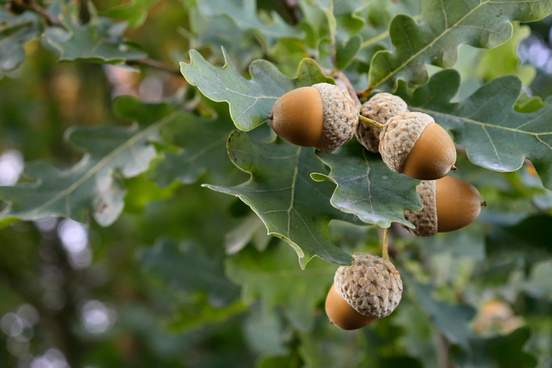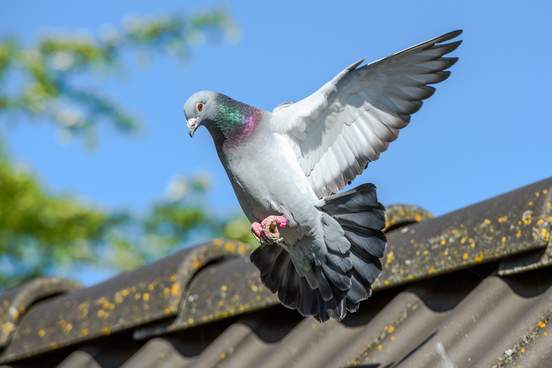
Eggcorn
The word eggcorn refers to a word or phrase that sounds like another word or phrase and is sometimes mistakenly used in place of the latter in a way that seems logical or plausible.
An example might be a writer describing an order to “seize and desist” rather than the proper term cease and desist, the occasional instance of “mixmash” instead of mishmash, or “cold slaw” instead of coleslaw, or someone mishearing the word scapegoat as “escape goat.”
In these instances the logic comes usually from replacing an unfamiliar word or part with one that might be more familiar. Cease and desist is a legal command that might make one think of having something taken away (seized); mishmash has the notion of a confusing mixture in its definition; and coleslaw invites the interpretation “cold slaw” since it is served cold.
While some eggcorns on this list are clear no-nos in edited prose, a few are known to slip by editors’ eyes every now and again or have become acceptable (or at least not wholly despised) alternatives to the original misheard phrase. And at least one is sometimes considered an eggcorn even though it isn’t! Tricky!
The term eggcorn—itself an alteration of acorn (an acorn being, in a figurative sense, an “egg” of an oak tree)—is a recent invention, coined by the linguist Geoffrey Pullum to describe the phenomenon.

"Doggy Dog World"
While the idea of a doggy dog world, a planet devoted entirely to cuddly pups and fluffy snufflers, sounds quite appealing, the correct phrase is “it’s a dog-eat-dog world.” As dog-eat-dog means “marked by ruthless self-interest,” it also pops up in constructions like “dog-eat-dog business,” “dog-eat-dog mentality,” and “dog-eat-dog competition.” None of these, mercifully, refers to chow chows chowing down on other chow chows.
“If there are 25 world-class athletes fighting for twenty places, that is a real dog-eat-dog environment.”
— Jenny Meadows, quoted in The Herald (Glasgow, Scotland), 6 Nov. 2017

"A Tough/Hard Road to Hoe"
When you consider the percentage of the world’s roads that are paved, most are going to be pretty difficult to hoe. If you find yourself digging for this expression, the one you likely want instead is “a tough (or hard) row to hoe,” row referring here to a line of planted crops, and hoe meaning “to work with a tool with a thin flat blade on a long handle to cultivate, weed, or loosen the earth around plants.” The phrase describes things that are difficult to do or deal with, as in “becoming a surgeon can be a tough row to hoe.” “A tough/hard road to hoe” is a variant considered incorrect by most usage guides. However, incorrect though it may be (far be it from us lexicographers to advise on how best to maintain highways and byways), it has been in use for almost 200 years; a print, released in 1840 as a satire about Martin Van Buren’s re-election campaign prominently featured the text “A Hard Road to Hoe! Or, the White House Turnpike, macadamized by the North Benders.” Ya burnt, Van Buren.
Counselor Jolene Nannini said that, during the commencement ceremony, most teachers really cheer for the kids that weren't sure if they would make it. “For a lot of teachers, the high point is watching those kids cross the stage that maybe have had a tough row to hoe,” Nannini said. “It took a lot of people supporting that child to get to that finish line. For us, of course we’re super proud of those high-achievers, but I think for all of us those ones that have had a life of struggle, those hold a special place in all of our hearts.”
— Lorien Nettleton, The Times-News (Twin Falls, Idaho), 28 May 2023

"Home/Hone In On"
We define both home in on and hone in on as meaning the same thing. Though some consider hone in on to be an error, let’s zero in on why that’s not necessarily the case. Home may be much more commonly used as a noun than as a verb, but it is used as a verb in the expression “to home in on,” meaning “to find and move directly toward (someone or something).” Think of homing pigeon to remember this usage. Hone is more familiar as a verb, meaning “to sharpen or smooth with a whetstone,” and this image of “making sharper” along with the similarity to home have led to hone in being used with the same meaning as home in. This use of hone in dates to around 1965, which makes it only about 10 years newer than the figurative use of home in. We have enough evidence of hone in in use that we enter it in our dictionaries. However, home in remains more common, and is the version to use if you want to avoid criticism.
When you’re on your walk, get in the habit of pausing and homing in on a detail — a ripple on a lake, an ant moving industriously through the grass — then, slowly expand your field of vision. The shift in focus to vastness can sometimes inspire awe, Dr. Keltner said.
— Jancee Dunn, The New York Times, 2 June 2023Top e-commerce platforms make it both easy and affordable to build a successful online store. Of course, with so many good options on the market, choosing the right system for your needs can be challenging. To help, we performed an in-depth analysis to hone in on the best e-commerce platforms for small businesses in 2023.
— Kathy Haan and Kelly Main, Forbes, 5 June 2023

"Champ/Chomp at the Bit"
Some people buck like broncos when they hear someone say “chomp at the bit” rather than “champ at the bit,” believing the phrase to be an eggcorn like others in this article. But as chomp originated as an alteration of the older verb champ, both are correct as figurative phrases meaning “to show impatience of delay or restraint.” The bit in each is the part of a bridle inserted into a horse’s mouth to help the rider or driver direct it. Noticing a fidgety horse’s tendency to champ or chomp on their bit led to the expression, which describes the behavior of people who just want to the get the show on the road already. You have to admit that regardless of your preference for champ or chomp (each has its ardent defenders), both make plenty of horse sense.
Keep holding on to who you are. Sometimes it’s tempting to wander off. And I have a lot of young designers who are chomping at the bit to do something very different. But I have to stay true to the brand. That’s when my work is most important — when I stay true to the brand and to myself.
— Tommy Hilfiger, quoted in Rolling Stone, 21 Mar. 2023Damn you, Pamela Adlon, for guaranteeing that I will henceforth get misty every time I hear Monty Python’s “Always Look on the Bright Side of Life,” the writer-director-star’s canny selection for a series-closing singalong. … I’m here for a family reunion any time Adlon has more stories to tell, or I can just continue to champ at the bit for the next TV world she wants to create.
— Daniel Fienberg, The Hollywood Reporter, 15 Dec. 2022

"Deep-Seeded"
Some people assume that troublesome words lie at the more difficult end of the vocabulary spectrum: dilemma, imminent, corporeal. But this is not always the case, as people have a deep-seeded tendency to confuse words regardless of syllable count. For example, did you catch the error in the previous sentence? Maybe not, because the confusion is actually deep-seated.
Both seated and seeded show up paired with deep- in written, edited prose, though only one of them is right. Deep-seated is the adjective you are looking for to refer to something that is firmly established (such as, “It was a deep-seated tradition for graduates to wear white under their graduation robes”). It can also refer to something that is situated far below the surface—deep-seated fears, deep-seated inflammation, deep-seated psychological need. The confusion between seated and seeded is easy enough to understand: they have nearly identical pronunciations.
There’s a deep-seated idea that driving = freedom. Look no further than car commercials, many of which market motor vehicles as freedom machines. It’s just you (actually, Matthew McConaughey — but it could be you!), your foot on the gas, hands on the wheel and a conveniently empty road, beckoning you to drive off into the sunset. Of course, to get that perfect shot of a shiny new model zipping through downtown streets, the route had to be closed off to anyone else trying to drive. You won’t see Janelle Monáe or Brie Larson stuck in traffic because that reality doesn’t mesh well with the fantasy that carmakers aim to associate with their product. In L.A., the average driver spent an estimated 95 hours last year — just shy of four days — stuck in traffic, according to the transportation analytics firm Inrix.
— Ryan Fonseca, The Los Angeles Times, 31 May 2023

"Nip in the Butt"
To figuratively nip something in the bud is to stop it immediately so that it does not continue or worsen. This is because literally nipping a bud off a plant prevents it from flowering. Nipping something in the butt, on the other hand, sounds more like a product of a doggy dog world.
If you happen to be having a conversation with someone who won't let you get a word in edgewise, while they spout some sort of hateful rhetoric, excuse yourself, and go get some fresh air. If you engage with sociopaths, or you don't “nip it in the bud,” they will always find a way to take advantage of you. The best thing to do is not to get sucked in, but if you already have, it’s time to start planning your exit.
— Oliwia Szczekot, Entrepreneur.com, 16 Apr. 2022

"Another Thing/Think Coming"
You may have noticed that some people say “you have/got another think coming” while others say “you have/got another thing coming.” Both expressions are used to tell a person that they're wrong and should consider changing their mind.
Those who use think think those who use thing have another think coming if they think they're right in using thing—and vice versa. Here’s where we might lose some of you: we don’t think there is any reason for reproving the other’s usage. Yes, thing is meaningless here, leaving the “think” users to wonder what exactly will be coming, but think also leaves the “thing” users who are unfamiliar with the noun (which actually dates to the early 19th century and refers to an act of thinking) wondering if the statement is grammatical.
We have to say that those who question the noun think are probably American English speakers, since it is frequently used in British English. The noun did eventually float into American English, and in the mid-19th century, it became grounded in the expression “another think coming.” “Another thing coming” dates later, which suggests that thing is an eggcorn of think.
The neighborhood thought when Mr. Radley went under Boo would come out, but it had another think coming: Boo's elder brother returned from Pensacola and took Mr. Radley's place.
— Harper Lee, To Kill a Mockingbird, 1960For whatever reason — the endless scroll of streaming content reorienting our concept of a long time, perhaps — Hollywood has made its peace with the three-hour blockbuster, and expects the public to do the same. The most faithful faction of the Wick fandom will undoubtedly be pleased to see their belief that you can’t have too much of a good thing put into practice. Those who appreciated the original for its brutal, sinewy agility have another thing coming: a lumbering, stultifying gargantua of a film willing to kill everything except its darlings.
— Charles Bramseco, The Guardian (London, England), 14 Mar. 2023





